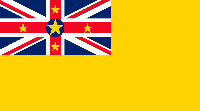Offshore
OVERVIEW OF OFFSHORE ZONES
Offshore – the term “offshore” means a state or a part of it, on the territory of which specific tax conditions apply.
For an entrepreneur, registering a company in an offshore means obtaining favorable conditions for business:
- Tax incentives that differ in different offshores;
- Procedure for obtaining reports on business activities is simplified as much as possible;
- Data on the owners of the offshore company is completely confidential;
- Customs and foreign exchange regimes with preferential terms.
At the same time, the concept of “offshore” can be understood not only as a jurisdiction, but also an enterprise that is registered in an offshore zone.
In offshores the so-called offshore legislation applies which differently regulates the taxation procedure. For example, registered companies may not pay taxes if they undertake to work outside the offshore and not do business with offshore resident companies.
That is, offshore is a jurisdiction in which an entrepreneur registers a company and is engaged in activities within a special legal field. The only condition is to work exclusively outside the state and the absence of joint business with offshore residents.
OFFSHORE OR OFFSHORE — HOW IS IT RIGHT AND IS THERE A DIFFERENCE
Since the term “offshore” itself is of English origin and literally means “away from the coast”, then the question of the correct spelling should be considered from this side. In the original, this term is written as “offshore”.
OFFSHORE CENTERS
An offshore center is called the country itself or a certain territory of it, where non-resident companies operating abroad receive tax benefits. That is, offshore centers serve as an attractive place for foreign investment.
If there is an offshore, then what is an onshore?
Unlike offshore, the onshore center does not provide companies with tax incentives for business, even when the business is foreign and operates outside of the onshore. In the language of law, an onshore is a full tax jurisdiction.
OFFSHORE COMPANIES
A firm is considered officially offshore if it is registered in a country that provides tax incentives to non-resident companies. On the territory of the offshore jurisdiction itself, such companies do not work and are owned by foreign citizens. Such companies, having tax benefits, pay a fixed tax to the treasury annually.
OFFSHORE BANKS
By analogy with an offshore company, an offshore bank operates offshore. They are of two types:
- Branches working exclusively with offshore companies, as well as with persons who want to open a bank account abroad;
- Banks that businessmen organize for their own needs.
OFFSHORE TRUSTS
Likewise, a trust fund operating offshore is called an offshore trust. The settlor transfers part of the assets, tangible or intangible, to the trust. Simply put, any property that is transferred to a trust, from the moment of transfer, is considered the property of that trust. The settlor may make demands as to where the assets invested in the trust will be directed. Real estate, money, shares and other assets, both tangible and intangible, are transferred to an offshore trust.
Registration of a company offshore has both a number of advantages and disadvantages.
Advantages:
- Tax incentives. This allows you to optimize costs by reducing taxation. It is tax incentives that mainly motivate businessmen to transfer assets offshore.
- Confidentiality. Information about business transactions, as well as personal data, are reliably protected, since most offshores do not register beneficiaries.
- Speed of procedures. In some cases, the registration of a company, subject to the submission of all documents in the prescribed manner, takes only 24 hours. This means that you can start doing business as soon as possible. Besides, the requested package of documents is minimal.
- Foreign currency accounts. The indisputable advantage of an offshore is the ability to open a foreign currency account in any convenient currency and not only in the currency of the jurisdiction under which the account is opened. This is great for companies conducting international business activity.
- Reporting is simplified as much as possible. In some offshores, reporting is required. Offshore companies either do not submit reports at all and keep accounting, or the reporting scheme is simplified.
Offshore companies also have disadvantages, which are more than offset by its advantages:
- Each jurisdiction has its own legislation. That is, you will not be able to work offshore in the legal framework of your country of residence. You need to choose an offshore company thoughtfully, since somewhere there are more favorable conditions for doing the insurance business, somewhere – for working with the real estate, and somewhere – it is more profitable to engage in trade.
- Audit is mandatory. In most offshores, the involvement of local auditors in business audits is mandatory. For example, such offshores are Singapore and Hong Kong.
- Only a non-resident may be the owner. In some jurisdictions, there is no difference at all between a resident firm and a non-resident firm. Nevertheless, most offshores require only a foreigner to own the company. Therefore, when choosing an offshore, take into account your citizenship and try to find out in advance all the subtleties and nuances associated with this.
- Business activities can only be conducted outside the chosen offshore. This is the essence – to take the activity outside the state where the company was registered.
- Large countries have a negative attitude towards offshores. It is believed that it is because of offshores large sums of money are not taxed and do not end up in the state treasury. Therefore, offshore jurisdictions operate in conditions of pressure, inspections and sanctions, as well as attempts to tighten the legal framework.
Even in spite of the listed disadvantages, offshores still have more advantages for businesses. The most important thing is to think carefully about the choice of jurisdiction.
OFFSHORE ZONE
Like an offshore, an offshore zone is a territory where a preferential taxation system is in place for non-resident businessmen. Simply put – for foreigners. Such territories are called financial havens, tax havens. At the same time, each offshore zone operates in its own legal field, therefore, before registering a company, it is imperative to study the specifics of the chosen offshore.
It was noted above that not only a country can be an offshore, but even some part or region of it. A state that positions itself as an offshore zone benefits from attracting foreign capital and investment. It helps to develop the economy and strengthen the financial system.
OFFSHORE HISTORY
Since time immemorial, a state has sought to gain complete control over the activities of entrepreneurs, seeing this as the key to regulating the economic situation. Businessmen, on the other hand, did their best to weaken state control and give as little profit as possible to the treasury.
The term “offshore” was first used in an American newspaper in the 1950s. The article talked about a company that managed to avoid the tax burden of the state. Entrepreneurs had placed assets in a bank in another country on more favorable tax terms.
Some kind of offshore companies existed already in the days of ancient Greece. Different peoples tried to attract capital to their territory, developing international trade and providing foreign merchants with various benefits for doing business, including exemption from taxes and duties.
But offshore companies in the form in which they function now appeared in the second half of the 20th century with the active assistance of Great Britain. The centers, operating on the same principles as modern offshores, were created for the wealthy British, as the upper class tried to alleviate the tax burden imposed by the state. Naturally, the islands-colonies or the dependent territories of Britain became such zones.
The history of the emergence of offshore zones
Gradually, with the development and globalization of the world economy, the number of countries in which offshore jurisdictions operated in one way or another, began to increase rapidly. They attracted investors with obvious advantages: almost complete non-interference of the state in business, low tax rates, confidentiality of information about the owners of non-resident companies.
Switzerland was the first to open a modern offshore jurisdiction. Here, a currency exchange service was opened, as well as the system for ensuring the confidentiality of information about account holders, which became a turning point in the development of offshores.
Today, citizens of many countries are trying to weaken the tax burden imposed by their governments by transferring assets abroad to offshores. Various reasons prompting businessmen to open accounts and register companies in offshore zones have a positive effect on the development of the latter.
In total, there are three main categories among offshores:
- Classic offshores. In these states, companies are completely tax-exempt. Instead, they pay a flat fee annually. The fact of payment allows you to renew the license and engage in business for another year. A peculiarity of classic offshores is more than loyal reporting requirements. Moreover, in the BVI and Panama, there is no need to submit reports to the regulatory authorities at all.
- Low-tax zones. In these countries, non-resident companies pay tax at a minimum rate. But in them, accounting and timely submission of reports is a prerequisite. The most striking example of such a zone is Cyprus.
- Other zones with optimal conditions for minimizing taxation. Such countries or their parts are not officially offshores. At the same time, the peculiarities of the legislative system allow registering a company there and minimize the tax rate. Examples of such zones are the Netherlands and the United Kingdom. So, in the Netherlands, the tax rate for businesses that conduct business abroad does not exceed one percent.
According to another classification, offshores can be divided into:
- Offshores on the islands;
- Offshores in Europe;
- Separate territories where special tax legislation is in force.
Each category has its distinctive features, so there is no clear generally accepted definition and classification of offshores. This is one of the reasons why it is impossible to name the exact number of offshores in the world.
HOW TO CHOOSE AN OFFSHORE ZONE
The choice of an offshore completely depends on the specifics of the business and the tasks set, since each jurisdiction has its own peculiarities. But first of all, attention should be paid to:
- Benefits provided to non-resident companies in the current legislation;
- General economic situation;
- Degree of stability of legal and economic systems;
- Peculiarities of the company registration procedure;
- Reputation of the offshore in the business community;
- Degree of infrastructure development and the potential to organize effective management;
Let’s consider each item in more detail.
Tax incentives, legal framework and economic situation. Since the main advantage of offshores is the ability to minimize taxes, this point should be paid attention to first of all. And that’s that factor that should play a decisive role when choosing a jurisdiction.
Before collecting documents, submitting them and further registration, it is strongly recommended that you do not just familiarize yourself but study the legislative framework and everything related to the legal aspect of the activities of firms.
Stability of economic, political and legal systems is the pillar on which the algorithm for choosing an offshore should be built. This is an important point, since with any change of government and the ruling regime, tax legislation may also change.
Ease of registration. When choosing an offshore, pay attention to the subtleties and pitfalls of the registration procedure. Any jurisdiction sets out its own criteria, deadlines, package of documents, as well as requirements for shareholders and founders.
The cost of the registration procedure is an underestimated item that is usually overlooked. At the same time, it is extremely important to calculate the costs before registration, since you will need to cover:
- State duty;
- Rent of the office (if applicable);
- Nominee service;
- Auditor services;
Depending on the offshore, the price of the registration procedure may differ significantly. As indicated above, the cost of maintaining a firm is only one of the points. Ease of management is what can significantly affect the price. Study the mechanics of filing reports, the need to involve auditors, whether there are sufficiently reliable banks in the offshore that work with non-residents.
Offshore reputation.
If your business plan includes cooperation with foreign companies, pay attention to the reputation of the offshore where you want to register the company. Each state has its own list of so-called “black offshore companies”, cooperation with which is not encouraged. Therefore, in order not to face negative consequences from financial institutions and not to get additional problems with banks, pay attention to the fact that the offshore is not included in this black list in the country that is your potential sales market.
It is easy to avoid this – to register in an offshore, which has a generally positive reputation in the world market. This reputation is to be confirmed by the authorized bodies (FATF, MONEYVAL, GAFISUD, CFATF).
INTERNATIONAL REGULATION
The offshore business is controlled by certain international bodies. They make sure that the activities of non-resident companies do not contradict the current legislation. They also control pricing, preventing dumping, check the reliability and legality of transactions, and in addition, they establish the identity of the owners of the offshore companies.
FATF
This organization is working to prevent money laundering. Its employees identify illegal business activities, including activities related to the financing of terrorism. Another task of the FATF is to check the activities of companies for compliance with international norms.
OECD
Its scope of activity – control and coordination of the economic policies of the participating countries. The main function is to monitor compliance with the rules of preferential taxation, as well as to identify offshores operating in violation of the law. If according to the results of the audit, it turns out that the offshore operates according to principles different from the OECD, then this jurisdiction is blacklisted. It is considered a zone in which activities are carried out in the framework of unfair tax competition.
REGIONAL REGULATION
UNITED STATES OF AMERICA
Offshores are not spelled out in the legislation and they are not officially registered, however, there are norms in the legal field, the presence of which allows us to say that there are still hidden offshores in the country.
At the same time, speaking of offshores in the United States does not mean offshores in the classical sense. But the analysis of legal norms, as well as of other signs, shows that offshores in one form or another are more than successful in the United States.
The occurrence of such a situation is possible due to the peculiarities of the US legislative system. It has several levels. First, there are federal laws. They must be observed throughout the US. Secondly, the laws of individual states. This is what makes it possible to create favorable conditions for doing business in some states. By its principle, the legal framework in such states seem to be as in offshores. The most striking examples are Delaware, Nevada, Arkansas.
EUROPEAN UNION
Many states in the EU are trying to fight offshores, but such a fight has not led to any noticeable results. Offshore zones appear again and again where the most loyal tax legislation is, and this is quite understandable.
The EU does not have a single legislation that would clearly regulate the activities of offshore zones. The government is trying to take control of offshore jurisdictions, but there are often cases when the actions of representatives of the executive branch go beyond the legal framework.
In countries such as France, Italy, Sweden today there are exceptions provided in the legal field, which allow you to get a more loyal tax rate. That is, there is a possibility for enterprises to receive a special status and related tax benefits. As a consequence, this leads to minimization of the tax burden and the concealment of part of the income.
In connection with this situation, the Organization for Economic Cooperation and Development has provided a detailed plan to combat offshores. This plan is one of the most significant initiatives in this direction. Thus, the points in the plan are aimed at preventing double taxation and eliminating inaccuracies in the Treaties.
UKRAINE
Ukrainians are also trying to take assets offshore and conduct business on behalf of offshore companies. This allows not only to reduce the tax burden, but also to protect assets. In addition, working offshore is a proven way of bringing a business to the international market and a prerequisite for starting to work with foreign counterparties. Naturally, the government seeks to strengthen control over offshores, for which specific measures are developed.
No more than 85% of the funds may be debited to gross expenses paid to offshores. The same restrictions apply to companies that are registered in these offshores. The program of preventing the legalization of funds obtained by illegal means provides for the verification of all financial transactions that are somehow related to offshores.
- In fact, there is additional taxation aimed at payments that are transferred to small foreign insurance companies;
- According to the resolution of the State Commission on the Stock Market, the participation of offshores in operations on the securities market is also limited. They can only operate on the market through licensed intermediaries;
- In addition, in the legal field of Ukraine there is a separate criminal article that provides for the punishment for the opening and use of accounts opened outside the country;
INTERNATIONAL REGULATION
There are many schemes for using offshores. Let’s take a look at some of them.
Import and export operations
The company, which is registered in an offshore, buys goods at reduced prices and resells them to a company that operates in a state with higher taxes. It resells the goods to an intermediary, making a profit. In this scheme, the center is an offshore enterprise making the initial purchase and resale.
When such agreements are entered into, the speed of transactions is important.
Contractor firm
Another common scheme is registering a company offshore and using it as a contractor. Simply put, an offshore firm can provide services by appearing in the documents as a contractor. In this case, the tax reports for the contractor’s services will be recorded as an expense.
Investment
An investor working through an offshore jurisdiction can take advantage of the benefits of double taxation treaties.
An offshore firm is often used as a way to build an investment portfolio. If all the subtleties are taken into account, then the profit received as a result of the work will not be taxed.
Holding
The main task is to manage assets in the interests of the owners. Dividends are paid in favor of such holdings. It is quite possible to reduce them if you correctly use all the opportunities that the relevant agreements provide for the avoidance of double taxation.
Banking activity
Most countries are trying to oust offshore banks from the financial services market and take their place. Despite this, the number of offshore banks is increasing, and they have been working all over the world for years.
Transport companies
All over the world offshore transport companies provide carrier services that are in great demand.
Real estate ownership
The offshore company, which is registered as the official owner, can be used in order to remain incognito. After that, the rights to manage the property can be transferred to the manager.
Insurance
Insurance offshore firms are used to protect real firms from possible risks, as well as in order to have the legal right to transfer funds abroad. Such firms operate under reinsurance contracts.
Mutual settlements
An offshore firm sometimes uses a foreign bank account for settlements with partners. Almost all banks provide the ability to manage accounts through the Internet banking system, which simplifies financial control and removes the need to file reports.
Employment
Consulting firms are increasingly choosing to operate offshore. Simply put, a representative office of the company is created offshore, and employees are registered there. This can significantly ease the tax burden.
Financial activity
The creation of several identical firms is used to make adjustments to the performance of firms in the same group. An offshore influences financial results using a wide arsenal of means, ranging from interest on loans and ending with work with the Central Bank. Such activities are closely monitored by the state, which is trying to establish tight control over this segment of the financial market.
Securities and everything connected with them
Companies prefer to work through low-tax zones, and not through offshores in the classical sense when it comes to the securities market. One of the most popular areas is Cyprus, as securities transactions are tax-free.
Asset protection
Re-registering assets offshore is one of the most popular schemes which is used to protect capital. At the same time, the documentation can be reissued not only for an offshore company, but also for a trust fund. Renewal protects from possible encroachments by simply hiding the true information about the owner. The level of confidentiality of information in classic offshores is at a high level. Therefore, there is nothing to fear.
Online trading
An offshore company can also be registered in order to conduct business via the Internet and sell your goods online. You just need to open a merchant account so that customers can make payments online using cards. In addition, such firms can register in several payment systems at once, even such as PayPal.
Copyright
Companies whose activities are related to intellectual property usually enter into a franchise agreement. This significantly lightens the tax burden and allows you to run your business much more efficiently.
Shipbuilding
For owners of ships of all types, transferring the company to offshore is also beneficial. This removes some of the tax burden, providing political gains and helping to increase revenue.
Improving business reputation
Developed countries are constantly trying to fight with offshores, registering a company in the offshore with a good reputation can help form a positive image of the company.
Other goals
An offshore registered firm can be used to generate income in any niche, from design to legal services. If the payment is transferred to bank accounts in offshore zones, then the tax costs are significantly reduced. At the same time, the confidentiality of information is maintained.
WHAT IS MORE PROFITABLE - TO REGISTER AN OFFSHORE COMPANY OR BUY A READY ONE?
When deciding to transfer a business offshore, an entrepreneur shall be ready to make a decision on how to do it. There are two options – to buy a ready company or to register a new one. What will be more profitable?
Such decisions should be made taking into account the specifics of the firm’s activities, the tasks facing the management and other factors. Undoubtedly, if the priority is saving time, then it is better to buy a ready company. This option allows you to start working offshore almost immediately compared to the registration of a new company.
PURCHASE OF A READY COMPANY
An offshore company is bought for a number of reasons. First, it is tax minimization and asset protection. In addition, working offshore allows you to maintain complete confidentiality of the data of the owner of the company, as well as protect the data on the operations performed. In fact, a ready company is bought offshore for the same purposes for which a new one is registered. The main difference, which often becomes critical, is the processing time, since the transfer of a ready business is faster than registering a new one, taking into account all the bureaucratic procedures.
Offshore ready companies are of two types:
1. “Shelf”. This is the most demanded and most common type. A shelf offshore is a company that is registered in advance, and then transferred for the use of the client at his request. Registration and sale can take from several weeks to a couple of months. The peculiarity of the charter of shelf offshore companies is that it meets the requirements set by banks as much as possible, and the package of documents is optimized so as to fit the maximum number of possible areas of activity. To start a new business, buying a shelf offshore company is considered the best option. Such company does not have a financial history yet, and the executives indicated in the documents are nominal. The purchase price most often already includes the fee and the registrar’s fee, as well as the cost of delivery of documents and nominee services.
2. “Vintage”. Such offshore companies already have a financial history. From the moment of creation to sale, they have existed for about several years. A vintage company is not an operating one, since no transactions have been recorded. Such companies are also called aged. In contrast, an operating enterprise will have a history of transactions, income and expenses, etc. It is the lack of accounting that can raise questions from the bank. And this must be taken into account when buying such an offshore company. However, vintage businesses are still popular in onshore, which is not the case for offshore. The reason is simple – offshore value the simplicity of registration and the speed of transfer of property rights. The sooner you can start doing business, the better. However, in some cases, a vintage company is needed in order to create a positive image and improve reputation among potential counterparties and partners. This, in turn, will serve as an impetus for business development and opening up new prospects for cooperation.
In any case, before buying an offshore, be sure to contact a specialist for advice. The consultant will help you make the right choice in favor of one of the options by carefully analyzing the stated goals and objectives.
HOW DOES THE OFFSHORE COMPANY REGISTRATION TAKE PLACE?
Registering an offshore company is relatively quick and inexpensive. This is one of the points that attract entrepreneurs. The package of documents is also minimal. To open a company in some jurisdictions, you only need the passport of the owner of the company. In addition, the amount of the minimum shared capital is not spelled out anywhere, which means that it is possible to open an account for almost any amount.
Official registration of the company
During the registration of the company, its offshore legal address becomes the address of the company that is currently engaged in paperwork and provides assistance with registration.
An offshore company can be set up by an individual, not just another company. The main condition is that an individual or legal entity must be a non-resident of the offshore where the company is to be registered.
The registration procedure takes a couple of months maximum. But the final terms depend on the legal field of jurisdiction and the state of the submitted documentation.
When buying a ready company, the terms are even shorter and amount to a maximum of several days.
During the registration, you can specify whether the information about the owners will be disclosed or will remain confidential. All that is required from the future owner is to pay the registration fee.
When registering, a nominee service is available, which is paid separately if you want the above name to be included in the documentation.
After the registration is completed, the owner receives all documents by courier mail.
FAQ
Working through offshores is not an easy topic. It is quite normal that those who are just thinking about buying a company have a lot of questions related to a wide variety of areas. We will try to answer the most common ones as fully as possible.
In a nutshell, this is an enterprise registered in a jurisdiction that provides businessmen with certain tax benefits, even a complete absence of taxation.
Any mechanism, including offshore, can be used both in legitimate schemes to ease tax oppression, and in attempts to evade taxes. Whether certain offshore transactions are legal is determined by taking into account a number of factors:
- Provisions of international agreements under which the transaction took place;
- The legislative framework of the participating countries;
- The legal field of the offshore company where the company was registered;
Offshore is a jurisdiction where tax benefits are provided for companies that operate outside this zone. There are about a hundred such jurisdictions in the world, but it is impossible to name the exact number. The fact is that it is sometimes difficult to clearly determine whether a zone is considered offshore.
Most companies resort to the services of professionals when it comes to opening a company offshore. This allows you not only to get an exhaustive consultation, but also to be sure that all documents are issued in accordance with the requirements of the chosen jurisdiction. Another reason to make a choice in favor of cooperation with intermediaries is a significant saving of time and nerves. Of course, you can go through the registration procedure yourself, but for this you need to collect all the available information about what requirements are imposed on companies in the chosen jurisdiction.
Buying a ready–made offshore is a task. For which it is better to use the services of a reliable intermediary with experience in conducting such transactions. Particular attention should be paid to such aspects as:
- Image in business circles;
- Work experience;
- Offers in offshore companies;
- Does the intermediary provide consultations;
- At what level is privacy;
- What warranty obligations is he ready to take on;
- Terms of registration and the cost of the package of services;
Registration of a company in an offshore company takes from a couple of days to a month. If the owner works with an intermediary organization, then his presence is most often not necessary.
If we are talking about a corporate account, then it can be opened in another state, and there. Where the company was registered. When choosing a bank, the main question is for what purposes you need an account.
- for mutual settlements with clients;
- to work with the Central Bank;
- to multiply and store assets;
Opening multiple accounts for different purposes is a common practice. Before opening an account, it is important to make sure that all the requirements that the bank imposes on account holders are met.
Most states have restrictions on working with offshore companies. This is an offshore regulation in action. One of the restrictions is an increased tax rate on transactions and transactions with offshore companies and enhanced control of transactions in foreign currency.
The “nominee shareholder” does not have ownership rights, but acts in the interests of the company in accordance with the clauses included in the contract. They are assigned in order to maintain confidentiality at the request of the owner.
The “nominee director” only carries out the instructions of the actual director, but does not manage the company. This is also done to preserve the owner’s incognito and all the nuances are included in the contract.
The rights of a nominee shareholder are limited by the items included in the constituent documentation, as well as by the framework provided for by law.
The concept of international tax planning refers to activities within the current legal framework in order to reduce the amount of taxes submitted for payment. One of the most frequently used tools is the withdrawal of assets offshore.
Deoffshorization is a set of measures to reduce the influence of companies that do business in the country and at the same time are foreign entities.
For a solid business, the use of foreign assets is common. Even routine practice.
Each of the existing offshore companies has its own specifics and requirements so that a non-resident can open a company there and do business in the future. In many ways, this is what makes the topic of offshore companies, the opening of enterprises or the purchase of ready-made firms a difficult topic, where it is often impossible to do without the help of an experienced specialist.
If you want to start or intensify cooperation with foreign counterparties through the opening of an offshore company, it is better to contact our specialists for help. Lawyers with many years of experience working with offshore companies will help you choose a jurisdiction in accordance with the goals of your business, and also make sure that all documentation is drawn up in accordance with the requirements of the selected offshore.



































